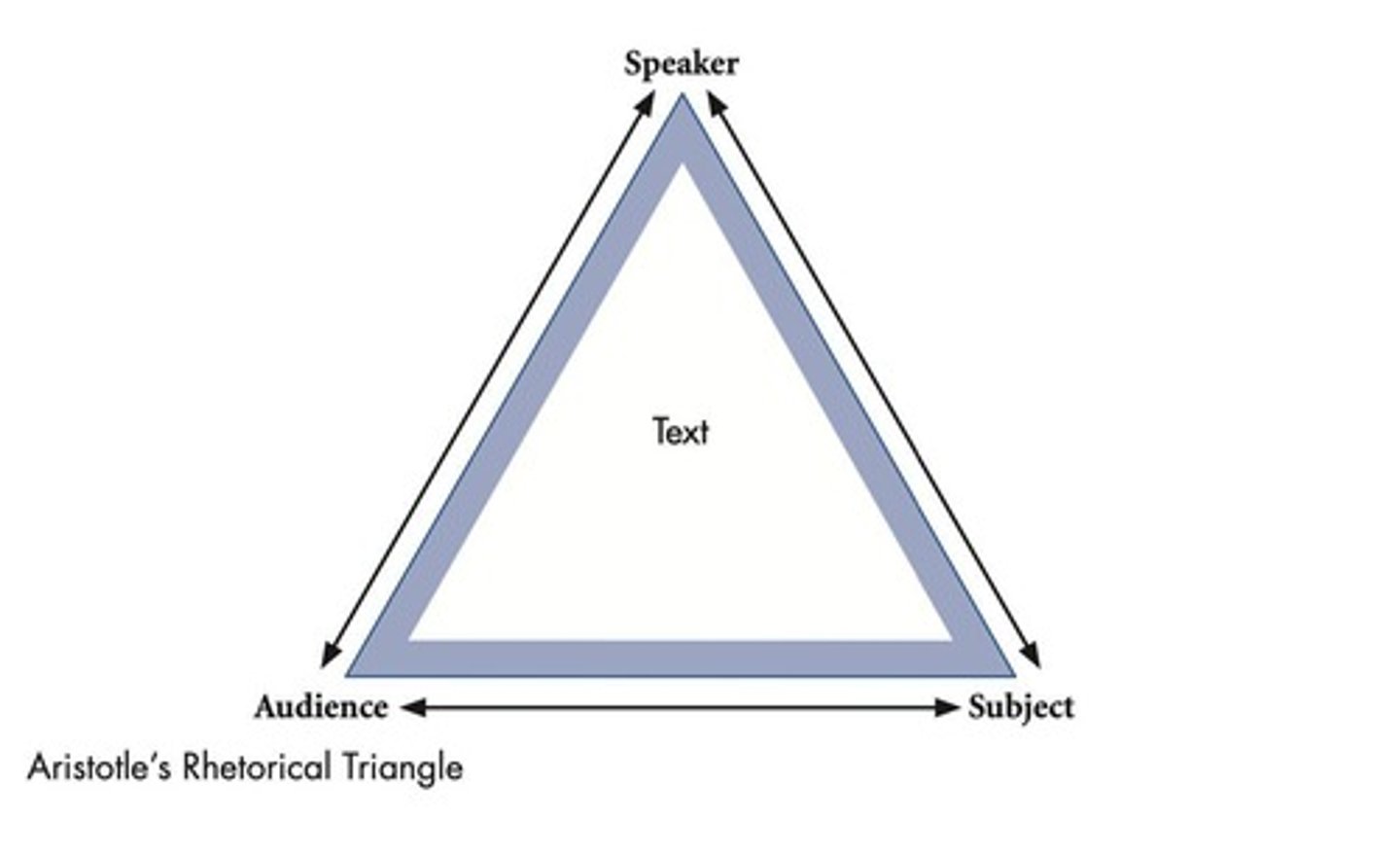AP Language Chapter 1 Terms and Main Ideas
1/25
There's no tags or description
Looks like no tags are added yet.
Name | Mastery | Learn | Test | Matching | Spaced |
|---|
No study sessions yet.
26 Terms
Rhetoric
"the faculty of observing in any given case the available means of persuasion"
Audience
The listener, viewer, or reader of a text (can be multiple audiences)
Texts
Cultural products that can be "read," meaning not just consumed and comprehended, but investigated
Exigence
The catalyst that prompts the speaker to address a topic
Context
The historical, cultural, and social movements of a time
Occasion
The specific circumstances, atmospheres, attitudes, and events surrounding the creation of the text
Purpose
The goal the speaker wants to achieve
The Rhetorical Triangle

Speaker
The person or group who creates a text
Persona
Greek for "mask." The face or character that a speaker shows to his or her audience.
Subject
The topic of a text. What the text is about.
The three main rhetorical appeals
Ethos, logos, pathos
Ethos
Where the speaker proves credibility to the audience
Automatic Ethos
The speaker's title or reputation can automatically establish ethos
Building Ethos
Writers and speakers often have to build their ethos by explaining their credentials or background to the reader, or by emphasizing shared values. You're more likely to listen to someone who is qualified to speak on a subject or who shares your interests and concerns
Logos
An appeal to the audience's logic/using specific details, examples, facts, statistics, or expert testimony
Counterargument
An opposing argument to the one the writer is putting forward.
Concession
An acknowledgement that an opposing argument may be true or reasonable
Refutation
A denial of the validity of an opposing argument. A refutation often follows a concession that acknowledges the validity of an opposing argument
Pathos
An appeal to an audience's emotions
Propagandistic
The spread of ideas and information to further a cause. In its negative sense, propaganda is the use of rumors, lies, disinformation, and scare tactics in order to damage or promote a cause.
Polemical
Greek for "hostile." An aggressive argument that tries to establish the superiority of one opinion over all others
Connotations
Meanings or associations that readers have with a word beyond its dictionary definition. Connotations are often positive or negative, and they often greatly affect the author's tone
Combining Ethos, Logos, and Pathos
If you lay out your argument logically, that will help to build your ethos. It is only logical to listen to an expert on a subject, so having ethos can help build a foundation for an appeal to logos.
It's also possible to build your ethos based on pathos (who better to speak about the pain of losing a loved one than someone who has gone through it)
Taking Rhetorical Risks
As a reader and writer, you want to develop the skills to anticipate interpretive responses different from your own.
Like making assumptions
Humorous and Satirical Rhetoric
Humor might work by wrapping a challenge in a joke, making us seem more receptive.
Also, humor can work by exaggerating a concept in order to make us see its faults.
Humour may help a writer make a point without seeming to preach or take himself too seriously.